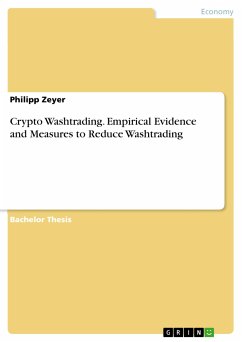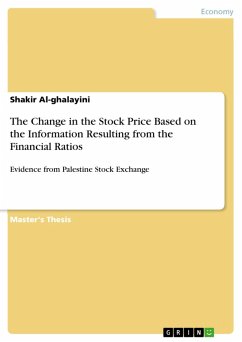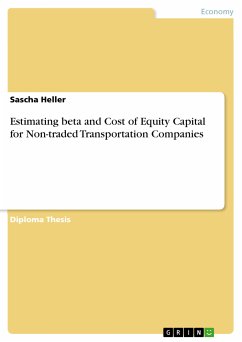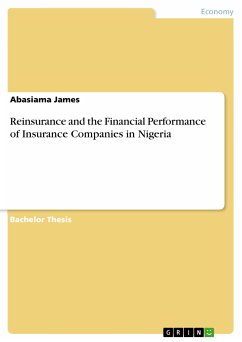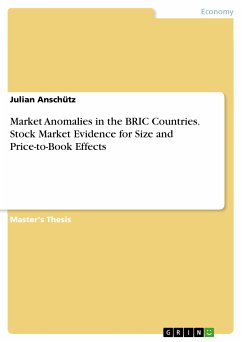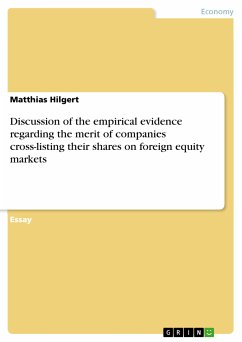
Discussion of the empirical evidence regarding the merit of companies cross-listing their shares on foreign equity markets (eBook, PDF)

PAYBACK Punkte
0 °P sammeln!
Essay from the year 2005 in the subject Business economics - Banking, Stock Exchanges, Insurance, Accounting, grade: very good (UK: grade A), University of Glasgow (Department of Accounting and Finance), course: International Financial Management, language: English, abstract: Some non-American companies benefit from a US-listing and others do not even cross-list in the US. Several empirical studies show that foreign companies, which are listed in the US, are worth more. However, less than one out of 10 large public non-American companies float their shares in the US (Doidge et al., 2004). Why ...
Essay from the year 2005 in the subject Business economics - Banking, Stock Exchanges, Insurance, Accounting, grade: very good (UK: grade A), University of Glasgow (Department of Accounting and Finance), course: International Financial Management, language: English, abstract: Some non-American companies benefit from a US-listing and others do not even cross-list in the US. Several empirical studies show that foreign companies, which are listed in the US, are worth more. However, less than one out of 10 large public non-American companies float their shares in the US (Doidge et al., 2004). Why is cross-listing beneficial to some companies and not to others? In 1997 more than 4,700 companies were internationally cross-listed. But, during the past several years this number decreased significantly by 50% to 2,300 (end of 2002) companies (Karolyi, 2004). Today more and more foreign companies acknowledge that they cannot cross-list in the US. Moreover, some companies admit that they are no longer even willing to cross-list, because of the high costs and strict requirements (Economist, 2005). Still, there must be a benefit for some to cross-list. A number of studies point out that the benefits regarding cross-listing include a lower cost of capital, access to foreign capital markets, an extended global shareholder base, greater liquidity in the trading of shares, publicity, visibility and prestige. On the other hand, these companies face costs, which might erode the benefits. Typical costs associated with a US-listing are the SECreporting, reconciliation of financial statements with home and foreign standards, direct listing costs, compliance requirements, exposure to legal liabilities, taxes and various trading frictions as well as investment banking fees (Karolyi, 2004 and Doidge et al., 2004). This essay aims to examine the empirical evidence regarding the merit of cross-listing shares on foreign equity markets, especially listing shares in the US. First, it critically reviews the conventional wisdom. Secondly, it examines the new approach of the cross-listing premium. Finally, it ends with a summary of this project and my own opinions.
Dieser Download kann aus rechtlichen Gründen nur mit Rechnungsadresse in A, B, BG, CY, CZ, D, DK, EW, E, FIN, F, GR, HR, H, IRL, I, LT, L, LR, M, NL, PL, P, R, S, SLO, SK ausgeliefert werden.





